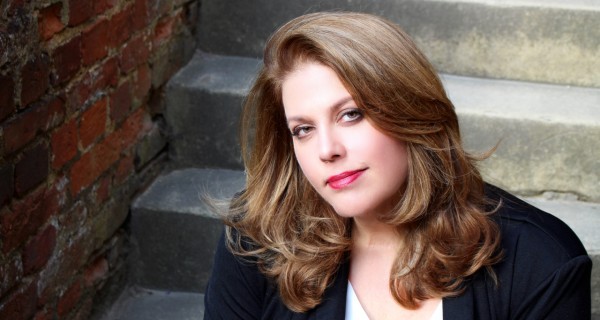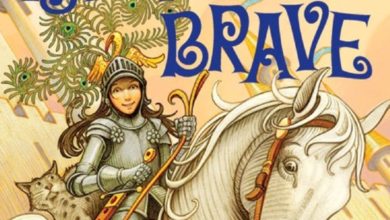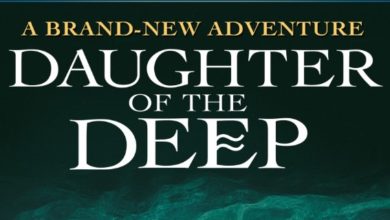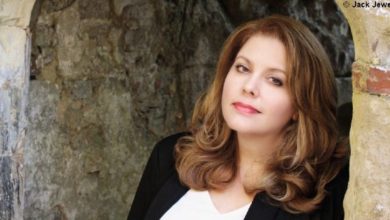
Hello and welcome to the second part of our conversation with YA and fantasy author Christi Daugherty. The conversation was held on December 30, 2020 over Zoom and continued for over an hour. That’s a very long read. For convenience of reading, we have decided to publish the conversation in thee parts. We talked about Daugherty’s career as a YA author, about her best-selling books, and about writing YA in general, and we had so much fun that an hour past in the blink of an eye! Be sure to check out parts one and three.
If your fantasy would have come true and you would have been able to go to a boarding school, how do you think the experience would have been for you?
Ah that’s a good question… I wonder, because I was quite shy, and I am still an introvert. I am not comfortable in large groups. I have nothing against them, I just tend to be the person who sits in a corner observing. I’m happiest there. I don’t mind being in a group, I just don’t want to be the center of it. Those are a lot of kids in one place, so I think it would depend on the kids, and the school itself. There are schools where I’ve spoken where I’m sure I would have fit him pretty comfortably, and then there are others where I thought, “Oh my goodness thank heaven I didn’t go to this school.” There have been a couple like that. So yeah, I think it would have depended. But at camp I always did okay, so I tend to believe that it often changes you in a good way. Moving to Britain, as an American, when I was in my 20s, changed me. It made me a slightly different person. So, I think I would have been a little more outgoing. I think I would have done okay.
What other kinds of research did you have to do to write both the natural books and the secret fire?
Well, for “Night School” I think I did quite limited research. I wanted to make up a lot of it, so I wanted it to be an invention as much as possible. But aside from visiting schools and talking to people, I researched about rules, like how many teachers might sleep at a boarding school. And this you can get by going on the websites of various private schools, and how much does it cost to send a student there, how long are the terms… This stuff was so easily available, I didn’t have to do anything particularly extraordinary to find out the basics of how it works.
For “The Secret Fire” I would have had to do a lot of research into the French half of it, because half of it takes place in Paris, and half of it takes place in in Britain. But my co-writer was Parisian, so she could do all the French bits. Everything that takes place in France, and particularly in Paris, she wrote, and everything that takes place in Oxford, I wrote. I’ve been to Oxford, and we went and walked around. My husband and I spent a couple of days just sort of walking around the streets and coming up with where we wanted to set things, and which college to use as the basis for it. That was really easy work. The rest of it was alchemical symbols, because “The Secret Fire” is based around the idea of alchemy as a form of actual magic. We started with the idea that what if alchemists were right and there was magic to be found in the natural world. So, boom let’s start from there. That was the only research left. We used real alchemical symbols – all the symbols on the cover of “The Secret Fire” are from ancient texts. And the beliefs about chemists at the time, we read up on those. And it was quite fascinating.
And then Carcassonne, the place where The Secret City is based, it’s a city in the South of France. I actually went there (any excuse, quite frankly, to go to the South of France) and spent a week driving around, looking at older villas, and old vineyards, and just getting a lay of the land, because much of the second book takes place there, and it was sort of like that, but then the rest was invention.
How did your dynamic with Carina Rosenfeld work when you wrote “The Secret Fire”?
It was funny, because when we started, we used to joke about how easy it was going to be for two people to turn in 80,000 words, because it’s 40,000 words each, no problem. It’s not easy. It’s really hard. But I’ve talked to a lot of co-writers about this since, and they’ve all come up with a structure. You have to come up with your own system for how you’re going to do it. For us, I would write one chapter and then she would write the next one, and back and forth. So, it goes from the Sasha, the boy’s perspective in Paris, to Taylor’s perspective in the UK. She would literally send me Sasha’s chapter that she just wrote, and I would read it, and then I would write the next chapter, which would be Taylor’s chapter and then send it back to her.
At first it went quite quickly, until we got to the meat of the plot. Then we really did create an outline to work from, but it was quite loose, because we both work very loosely with structure, and most of the time we didn’t know what the other person was going to write. It was almost like a writing exercise. Also, Carina writes in French and then translates that to English, so to keep things moving she would send me the French chapter, and I would try to read it, then give up and quickly Google Translate it, so I could just get an idea of what she’d written and start writing mine, while she was translating her chapter into English (she is fluent in both languages).
I was often sitting, reading her latest chapter on my phone, at 1:00 o’clock at night, and every time I was like, “oh man!” She set up this huge cliffhanger which I then just had to pick up. And one night I was reading, and she shot her own character in the face. How do I follow this? Nothing this exciting is going to be happening to my character, because her character was in a very different place in book one then my character was in book two. But he is in a very deep and dark place because of his situation, which is, as you know, that he basically has a family curse, that means he can’t die until his 18th birthday, when he will die. And because he is 17, he has given up on everything, because what’s the point of planning if you know you’re going to die on your 18th birthday. He keeps killing himself, trying to break this curse that traps him, and he just can’t die. So, his story is very dark, while my character is just sort of blithely walking along through her life unaware of who she is, and that she’s the alchemist who might be able to save him. So, they are in two very different places, and we have to strike this balance. We had to find a way. It took much longer than we thought. We thought it would take a few months, and it ended up taking really over a year to write one book. It was enjoyable and we both loved it, but we did both find it fascinatingly more difficult than we thought.
Can you sort of give highlights for co-writing work?
Yeah, basically we came up with an outline together, just emailing back and forth until we had maybe a four-page synopsis for book one and the beginning of book two. We knew, more or less, what we wanted to happen, but not necessarily how we would get there. Then Carina wrote the first chapter and sent it to me, almost a prologue, and I wrote the first chapter from my character’s perspective, in England, and sent it to her. That almost happened organically. We weren’t sure how we were going to do it, but once we’ve done that, then suddenly it made sense to do it in that way, to write from different perspectives – a Taylor chapter, a Sasha chapter. Unless one of them is too tangled up in something, and then there could be sometimes two chapters from a character’s perspective before it switches back.
From then on we decided to do it without too much engagement with each other, so I would say “go write, don’t tell me what. Just do your thing,” because we are each so independent, as well. We’re very independent writers, so it was a way to balance our personal independence with the codependence of writing together. She could do anything she wanted with her character and I could do anything I wanted with my character, and then we would adapt to what the other writer had done. That’s why I say it’s sort of like a writing exercise, and that you then had to adjust your expectations for the story based on what the other writer had done.
When you say her character – my character, do you mean that, for example, her character was Sasha, because he is French and she is French, and your character was Taylor, because she’s English and you are English?
Yes, exactly. That’s what we decided would be easiest, because then she’s already in that world. So, the neighborhoods in Paris where Sasha lives are real neighborhoods that Carina walks through every day, and the city streets that Taylor walks down are real streets here, that I have visited many times. That way, we both felt really comfortable with our settings, and only when Sasha comes to Oxford at a certain point, there’s a wonderful awkwardness to it, because it’s unfamiliar to him as it was unfamiliar to Carina, so that was really kind of nice. She worked that awkwardness into the book. And when Taylor goes to France, again, she’s in a foreign country, and she’s not completely out of her depth, but a little bit. She doesn’t always understand what people are saying. She’s just a little off balance, and that was intentional to make it feel more real.
What would happen, if it happened, if you were not happy with what Carina had written, or if she was not happy with what you’ve written?
It did happen a couple of times that one of us would be like, “I don’t know where you’re going with this,” or “is this going to work because of that,” and so, for example, when we first invented our monsters who are pursuing the heroes, I didn’t think the first monsters Carina created suited the book. She’s the monster inventor, that is the greatest thing. She’s written about 27 fantasy books. That woman can invent a monster in 5 minutes. It’s remarkable! I thought her monsters were a little not how I envisioned them in my head. So, I told her how I envisioned the monsters, and she said, “let me play with this.” She went off for about 20 minutes, and then she came back and asked, “how about this?” She had written a description, and even drawn a sketch of what became our monsters. I was like, “that’s it! that’s perfect!” It was like a mixture of what I had seen and what she had seen. It was so remarkable that she could do that so quickly.
So, if there was ever a point where one of us had doubts, you know – should we go here yet, are we ready for this yet, should be push this back a few chapters… we would discuss that and rearrange things a bit. But mostly we just went with it. Nine times out of ten, if she did something I wasn’t expecting, I thought it was great. It was thrilling. I mean, some of the stuff she came up with, it was just so exciting, not to know where her character was going go. And when they were together, where she was going to take our characters. It was something else to have that unexpectedness in a book you were sort of co-writing.
Do you yourself read YA literature? Do you think it’s a prerequisite for someone who writes YA?
To me it’s rule one of writing – read the genre you’re writing in. Read it obsessively, read it constantly. I have always read YA, since “Twilight,” really, and since before then, when I was younger. I’m constantly reading old and new YA, and just looking for where the voices are right now. There are certain kinds I don’t like and that’s true of any reading. So, in crime literature, because I also write adult crime novels, I don’t read serial killer books, and I don’t write them. I just don’t like them. And in YA I don’t read “issue books.” Like John Green-style books about cancer or eating disorder books or any of that. That doesn’t interest me, I’m a thriller person. Bring me a thriller in any genre and I will happily read that book. And romance books, I love those as well. But there needs to be some thriller elements to it, or I get bored. I’m actually quite narrow in my reading. I once tried to write a romance, and I got so bored writing it, that at about chapter ten I just put a bomb in it. I thought that would be really exciting, and my agent said it’s no longer a romance book. So yeah, I seem to be incapable of straight romances or books about problems. Those don’t interest me as much. And there’s a lot of issue books in Britain right now. Everything is very much about things in the world that are wrong, whereas I’m much more of a fantasy-crime person. I like things to fly and blow up.
How do you decide on the levels of romance on the one hand, and the action on the other hand? I mean, do too much romance and it’s a romance book. Do too much action and it’s an action book.
It’s tricky isn’t it. I don’t ever set out to write a romance in my book, and then it just always seems to happen. I seem to have a romantic streak. I always lean towards at least 75% thriller, and no more of the other kind. No more romance than that. And in that 75% thriller I’m including in there also character development and so forth. I just take that as part of the writing of anything. Your character has to be developed in there. But in terms of romance, that has to be a side story. It’s just not exciting enough. And that’s not anything against people who like more romantic books. It’s simply that my own personal taste is for excitement, to keep the pages going. A romance can be exciting if it’s an untrustworthy romance, if you’re not sure about the other person, those can be quite exciting in a way. Then you can build that up a little bit more. For example, in the early “Night School” books, the Sylvan Carter thing. But mostly, to me, it’s usually the side story, but it’s a way to get to the heart of the characters as well. It’s a way to see deeper into them.
Does YA have rules according to which you work?
I think there are rules. I think the rules were very strict when Night School first came out. In 2011 – 2012 I was literally told how many swear words I could have in a book—like literally how many. You could have zero of the very serious swear words, you can have one or two of the sort of medium swear words, and you can have as many as you want of the very low levels. There are rules on Sex, on how you portray it, were quite serious, and everything has to have one of the fundamental rules that I still hear like: sex has to have consequences. You can’t have sex without consequences, so basically, someone has to get pregnant, or you have to think about venereal disease. You’ve got to think about things you would never think about if you were writing an adult book. And birth control – very important! You have got to at least think about it. And if a main character, who we’re to see as a good character, does something thoughtless, or wrong, or cruel, there have to be consequences for that, or there has to be a reaction to that. They have to learn from that. At least, certainly, this is how publishers see it.
So, there’s a bit in “Night School” 2, for instance, when Ellie says something quite cruel about Zoe Glass—not even very cruel, just a little thoughtless, borderline cruel—who has Asperger syndrome. It’s the first time Allie meets her, and she makes a kind of a joke about it. I threw it in there because that’s how Allie is. She doesn’t know yet, and it was my intention that later in the book, she would learn and grow closer to Zoe, and their relationship would become what it does become. My editor, when she read it, the first thing she said was that she can’t say that, or someone has to call her up on it, and she needs to learn from this. There’s no slow learning. In YA the learning has to be quite quick. There is an immediate reaction and immediate “oh, I’m sorry,” and that does not necessarily reflect real life.
When I was writing, I always wanted to, as much as I could, reflect what it was like to be a teenager, and teenagers learn at the same pace as adults. We make mistakes repeatedly. We learn from that eventually, but we don’t always immediately learn. But in YA you really can’t get away with that. So, yeah, there are definite rules, but they’re tiny almost societal rules, so it was something that I learned, and now I do sort of automatically. But when I write for adults, I revel in the awfulness of characters. I just let them be horrible and have no consequences and then, eventually, consequences.
When and how you came to the conclusion: this is it, I’m a writer?
Hmmm, such a tough one isn’t it. Okay, because I’ve been a journalist, and always written nonfiction, I’ve learned the basics of word order and smooth writing. I learned that with nonfiction. Journalism is about writing concisely. You have very limited space, and you’ve got to convey very complicated things. I’ve had to describe a murder scene in 175 words before, and that’s all I had. That is literally the space that I had to work with, and that was good teaching. It was also writing under pressure. The deadline on my first job was midnight, and murderers don’t care what time it is. I have gone to crime scenes at 23:30, raced back to the newspaper with 10 minutes to spare. My editor would literally be editing over my shoulder in order to finish by the time the paper goes to press. I had 15 minutes to describe a complicated shooting scene, with quotes from witnesses and police officers. That was all my training.
Now, in terms of creative writing, that’s a different world, obviously, because how you structure novels and how you build characters are things people definitely study. I wish I could’ve done that, except I’m really bad about going to school, so I learned by reading books—hundreds and hundreds and hundreds and hundreds of books—and seeing the ones where they built the characters so well, that I believed them. Then I would read that book five times to try and understand the nuts and bolts of how they did it. Until I could deconstruct that book down to the method they’d used to build this, in a way that I didn’t notice it was building, until I felt so invested in the characters at the heart of it. To me, that is the ultimate training. It depends on if you are like me, if that’s how you learn better. I have nothing against creative writing courses. They are incredibly good, and I know amazing writers who’ve come out of them. But for me, the last thing I want is to go back to school. I’m very much a self-trained person, so that’s how I did it.
The first couple of times I wrote books, they were awful, and you do know when what you wrote is no good. I always knew by chapter eight. I’ve never tried to write a book and not known by chapter eight whether it was going to work or not. I get to chapter eight—that’s 15,000-16,000 words, maybe—and you can feel it. Do you feel the book or not? And when you read it, do you want to write more? As a writer, are you enjoying where the story is going? If you don’t want to write more, and if you can’t feel the drive towards the end of it, it’s not there. That’s when I usually throw it away, rethink and begin again. That’s something I still do today. I did it with Number 10, the book I’ve just written, which is the 2nd book in that series. I had written the beginning of it, then I had to stop because the world kind of ended when corona virus happened. I just couldn’t write anything for the first couple of months of that pandemic – March, April. When I went back to it in May, I just threw out everything I’d written before, it wasn’t working. I started over at a different point. And then it came together. Sometimes it’s about knowing when you’re beat, when you just don’t have it, and just letting that go and then thinking “back to the drawing board. Where do I start now?”
End of Part 2




